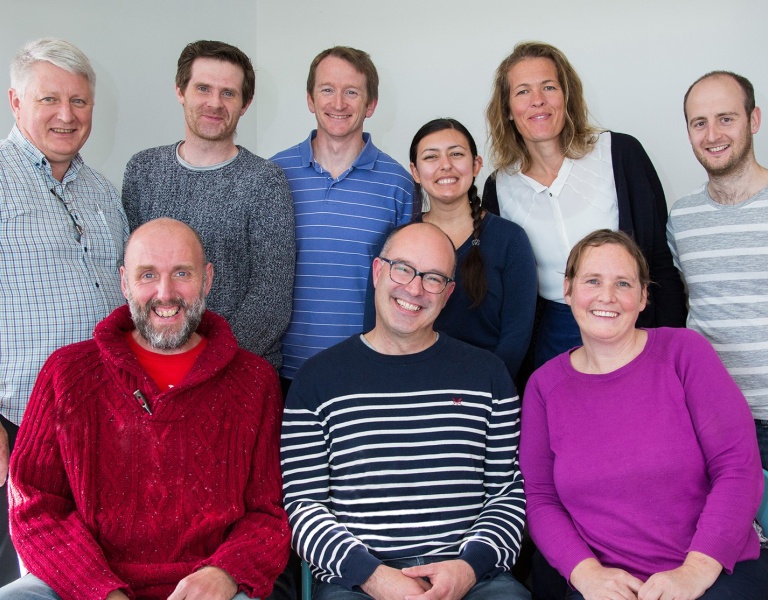RetroKit Aims to Play Key Role in Pushing Climate Targets
Ireland's commitment to upgrading 500,000 Irish homes by 2030 to meet CO2 emission targets, means 50,000 houses a year need to undergo transformative energy upgrades to stay on track.
Key Achievements
Enlisted Expertise
Assembling a team with multi-disciplinary expertise and providing a space and resource to drive innovation and creative thinking.
SEAI Funding
Development of a proof of concept prototype which for an SME would have been impossible without RD&D funding.
User Centred Design
Engage in co-design principle to gain an understanding of the pain points facing our clients and ensure a user-centred development.
Climate Action Plan
Aligns to Climate Action Plan goals of 500,000 homes energy upgrade to BER B2.
The Project
RetroKit, part-funded by SEAI, was developed to support housing providers and policy makers to plan and implement the delivery of the Climate Action Plan. RetroKit will be active in delivering on climate targets plan by enabling local authorities, housing providers and sustainable energy communities to upscale their energy retrofit initiatives.
The project was developed by a multidisciplinary team of researchers, engineers and business developers. Their focus was on the development and commercialisation of a cloud-based platform which uses data analytics and visualisation practices to assist housing providers assess energy performance of housing stock and to make the best renewable investment decisions.
The team's focus was to make Retrokit a sustainable business from the start, with a user-centred design approach central to what they were doing. Early on, the RetroKit team adopted the Lean Start-Up principles to accelerate the cycle from idea to commercialisation. This approach supported the engineers when it came to key software development processes unfamiliar to them in terms of communication, practices and methodologies. They focused on launching their first 'Minimal Viable Product' out to market as quickly as possible so they could get feedback from clients and continue developing their solutions in a way that met client's needs.
For the last two years, the team have been using RetroKit internally, using the software to analyse data for several local community Energy Master Plans. They are pleased with the results and efficiencies it has been producing. The team believe their user-centred design is key to the success of RetroKit. Throughout the development, they stayed engaged with users, potential clients and were able to modify on insights arising throughout this process. The team advise researchers not to complete a project like this without bringing in potential clients early on in the design stage.
RetroKit recommend the adoption of a co-design multi-disciplinary approach to innovation and a focus on commercialisation, identifying the appropriate business model, where appropriate.
The team learned from a wide range of experts who have contributed to its development. Experts included those working in data analytics, quantity surveying, procurement and most importantly the end user themselves.
"It will be difficult for Ireland to upgrade half a million homes between now and 2030 but it can be achieved by making the most of current data and empowering housing professionals and policy makers to make evidence-based decisions on investments. RetroKit can play a key part in making this happen." Xavier Dubuisson, CEO of RetroKit
Funding
SEAI provide financial support to energy research projects, like RetroKit which will progress and deliver clean energy solutions for Ireland. The €40,000 funding from SEAI has enabled the team to research and develop a new product from concept through prototype to commercialisation, resulting in the establishment of a new start-up company - RetroKit Ltd.
Learnings from the Project
The main learning for the founders was to develop the skills and knowledge to drive a software development project. From a technical perspective, their background in energy engineering helped with the design of the solution but they had a steep learning curve in terms of working with software specialists to turn this into a cloud-based software solution. Equally, developing RetroKit required significant financial investment - managing the cash flow and keeping a focus on commercialisation was essential for them.
Challenges
The most challenging part of the project for the team was to move from a linear way of working as consulting engineers to the iterative process more familiar in the world of software engineering. The RetroKit team were supported on their journey by experts in GIS, software development, UX, IT security and GDPR as well as a co-creation specialist who has helped the team to work together.
